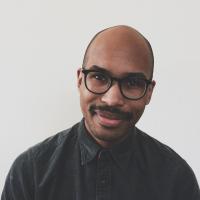00:00:00.900
Thank you for joining us today. We're going to be talking about a topic that's very dear to me and very important to me personally, and important to Wrapbook as a whole, which relates to diversity, equity, inclusion, and belonging.
00:00:31.560
My name is Zaid. I'm the VP of engineering at Wrapbook. I'm based in Toronto, Canada, and my pronouns are he/him.
00:00:45.300
Hi, my name is Jess and I'm a senior engineer at Wrapbook. My pronouns are she/her, and I'm based in Alabama.
00:00:52.379
Today, we will be talking about our journey at Wrapbook with building diverse teams. We'll go over what we tried, how it didn't work, and what eventually worked for us in making progress on our diversity goals.
00:01:10.860
But first, before we dive in, I will give you some background about what Wrapbook is and the context for our diversity, inclusion, and belonging efforts.
00:01:22.500
Wrapbook is the easiest way to onboard workers, pay them, and insure them for entertainment production companies, such as commercial productions, television, and film.
00:01:41.759
Wrapbook was founded in 2018 and we have 127 million dollars in funding from prominent investors like Hollywood's Tiger Global and Katzenberg from the entertainment industry. The team is strong with 170 people, including 68 in engineering and growing.
00:02:09.420
When I first joined Wrapbook in 2020, the engineering team was only five people, and the company had a total of 20 employees. We had plans to grow the company to 40 people by the end of 2021. That's a lot of growth for one year, which makes getting the right people on the team critical.
00:02:24.239
So many new people joining means they will be shaping our values, our culture, and how we operate. Getting it right is non-negotiable.
00:02:48.060
At the time, we identified a few main challenges that we needed to address in order to succeed. The first challenge was that as a small startup with no name recognition, it would be hard to stand out.
00:03:03.360
We needed to attract talent and compete with much larger, well-established companies for the same pool of talent. The second challenge was building a diverse team in a not-so-diverse industry.
00:03:22.260
Doing that was a key priority for us from the beginning.
00:03:33.900
It turns out that standing out is not so hard. You just have to get the fundamentals of the experience right. Providing a positive interview experience is key, whether the person joins the company or not.
00:04:16.380
The other thing is that it's important for the interview to reflect what is happening on the job. Many interviews tend to become what I call the 'battle of the egos,' where the interviewer is trying to assert intellectual supremacy over the interviewee.
00:04:44.460
We absolutely did not want that to be part of anything we do. The interview, especially the technical interview, had to reflect the actual job.
00:05:10.020
We also adopted a remote-first approach, which means we can meet talent where they are, unbounded by the diversity limits of major tech hubs.
00:05:16.320
The next question is why should we care about building a diverse team? I'd say it's the right thing to do, and that should be enough. We shouldn't need to give further reasons, but it has also been shown that diversity leads to better outcomes.
00:05:40.979
Diverse teams bring diverse perspectives shaped by varying life experiences. This means we can think about problems from more angles and come up with better solutions as a result.
00:06:08.820
Additionally, the team will reflect our customers, allowing us to understand the customer mindset better. Underrepresented groups face additional challenges in the industry, so if we can create an environment for them to succeed, we can enhance diversity in the industry as a whole.
00:06:39.660
Improving diversity does not mean compromising on standards. We need support from leadership. When I joined Wrapbook, there were no questions about whether we would build a diverse team.
00:06:58.020
We discussed it from day one, deciding to move forward with it. Individual efforts on local teams will only lead to localized success, but we cannot allow our teams to become isolated.
00:07:22.620
You need whole company buy-in for diversity efforts. The second part is to reduce bias throughout the process and the company. Although we want to eliminate bias, we all have internalized prejudices based on our life experiences.
00:08:05.940
If we don't make the effort to reduce biases, it's easy to negotiate against ourselves during the interview process. We need to establish a standardized hiring process with clear rubrics and expectations for everyone.
00:08:47.399
We should include multiple interviewers in panels for varying perspectives, allowing us to identify any potential unconscious bias during the decision-making process.
00:09:12.420
There’s a piece of advice suggesting all candidates should see people from underrepresented groups on every interview panel. While this is excellent if your company already meets its diversity targets, it is not feasible when starting from a challenging position.
00:10:04.920
If you're asking a small number of underrepresented individuals to participate in all interviews, how can they effectively perform their core job duties or advance in their careers?
00:10:35.820
We should focus on building a diverse team and showcasing diversity in interview panels by leveraging those who have the time and capability to contribute at that level.
00:11:16.560
The next aspect is ensuring that the environment we're creating is inclusive. It's crucial that the people we interview and hire don't create a hostile environment for underrepresented groups.
00:11:35.279
We filter candidates based on their attitude toward diversity and inclusion during the interview process. For example, at Wrapbook, recruiters engage candidates about their views on diversity right from the first interview.
00:11:50.040
We consistently ask questions on diversity during hiring manager interviews and final stages. We have made the difficult decision to say no to technically brilliant candidates who could create an unwelcoming environment.
00:12:30.180
So the interview process is as much for us to understand the candidates as it is for them to assess if our company culture fits their values and career goals.
00:12:53.340
A few months ago, while interviewing, I was struck by Wrapbook's emphasis on inclusion. This started from the first interview and was consistent through each round.
00:13:21.180
I compared experiences with a friend in the audience. We both received the same positive treatment, indicating that Wrapbook prioritized building an inclusive team at the company level.
00:14:10.380
On my first day at Wrapbook, I received a tailored onboarding checklist with specific milestones to hit during my first 90 days.
00:14:29.820
I was assigned an onboarding buddy from my team who helped me acclimate to the company, culture, product, and tech stack. This buddy system ensured I had someone to turn to for questions and uncertainties.
00:15:02.940
For anyone who identifies as non-binary or a woman, Wrapbook provides an additional onboarding buddy to ensure everyone feels supported during their transition into the company.
00:15:27.300
Imposter syndrome is more prevalent among underrepresented groups in tech. Having an onboarding buddy who likely had similar feelings provided me a necessary support system.
00:15:54.300
This support helped me cope with my self-doubt and navigate my new environment. After only a few months, I became an onboarding buddy for a new team member, and I've seen how the process has improved with each hire.
00:16:14.760
Our unified goal was to ensure that every new hire feels welcomed and valued. From the beginning, we were encouraged to improve the onboarding process for future hires, demonstrating our impact.
00:17:06.540
Despite strong feedback from candidates regarding their interview experience, we experienced challenges regarding gender diversity. Initially, we started the year with 20% representation of women and non-binary individuals, but by October, that dropped to 11%.
00:17:27.180
We knew what we were doing aligned with general recommendations on building diverse teams, so we did not give up. Instead, we decided to double down and set a top-level OKR for diversity numbers.
00:17:50.100
We considered setting the target at 20% or even 30%, which felt industry-standard, but instead, we set it at 50% because it matches the census of the general population.
00:18:23.220
We want Wrapbook to not only improve its diversity but also contribute to the industry's overall change.
00:18:44.100
Improving diversity does not mean compromising standards or expectations. Everyone should have the same expectations and interview process regardless of their background.
00:19:06.060
Acknowledging and addressing unconscious biases is critical to our growth. We all have them, and pretending otherwise doesn’t benefit anyone.
00:19:29.640
Moving forward, we are eager to make the industry more diverse and inclusive.
00:19:49.680
To make progress on our goals, we partnered with organizations representing underrepresented groups, whether related to gender or ethnicity.
00:20:19.320
This has helped raise our profile and connect us with applicants. We also thought about reserving roles for underrepresented groups but recognized it doesn't scale and could lead to discrimination.
00:20:55.080
Instead, we explored the Rooney Rule from the NFL, which mandates that at least one underrepresented candidate is interviewed for each hire.
00:21:14.060
However, applying this rule in a high-demand environment where we are hiring several engineers simultaneously proved to be challenging.
00:21:49.920
Ultimately, we decided to leverage our talent team's outreach efforts, focusing on finding underrepresented candidates for our interview process.
00:22:15.000
We saw some success, but soon encountered issues where our applicant pool dried up. Consequently, our talent team collaborated to create a new database of names.
00:22:40.260
By gathering female names and names that are common in various ethnic backgrounds, we improved our search and dramatically increased our response rates.
00:23:08.040
As a result, we’ve been able to make significant hires and decided to make this strategy permanent and commit to enhancing representation of underrepresented groups.
00:23:33.480
Our gender representation for female and non-binary individuals increased from 11% in October to over 32% today and continues to grow. We are confident we will meet our goal of 50%.
00:24:03.000
To summarize, the time to start working on diversity is immediately. Addressing it from the beginning helps to ensure it's woven into the fabric of the company.
00:24:33.420
The conventional wisdom about what works in diversity may not apply universally. It's vital to create processes and tools that aim to reduce bias.
00:25:06.840
Additionally, ongoing attention to inclusion is necessary to retain underrepresented talent. This creates an environment where all employees feel valued.
00:25:29.940
Leadership buy-in is key. Our collective effort enabled Wrapbook to double down and define strategies that work for us, improving our diversity numbers.
00:26:08.880
This pandemic has inspired a mindset amongst a collaborative teamwork in finding diverse talent, which is essential to improving the industry.
00:26:25.920
And it is essential to understand that this presentation has only scratched the surface in terms of diversity, equity, and inclusion. There are so many additional factors to consider while creating a thriving workplace.
00:26:56.940
We encourage you to apply these lessons in wherever you work. If this resonates with you, please come talk to us. We're excited to connect.
00:27:24.180
We have a booth at the conference where we invite you to stop by. You can take a Polaroid picture, enjoy some popcorn, or just hang out on the couches. We're hiring for many roles. Thank you for listening and enjoy the rest of the conference.
00:29:10.020
As for questions, yes, we have considered including neurodiversity in our diversity efforts. We recognize gender diversity as just one dimension. We've taken steps to accommodate various backgrounds and preferences during the interview process.
00:30:01.680
We also believe in fostering psychological safety and trust across teams, creating channels for open discussions. Our goal is to provide safe spaces and cultivate a supportive work environment.
00:30:45.720
We focus on the overall experience rather than complying with generic rules. Alternative mechanisms allow a safer platform for others to speak and express their ideas. Thank you for listening and for the insightful questions.










